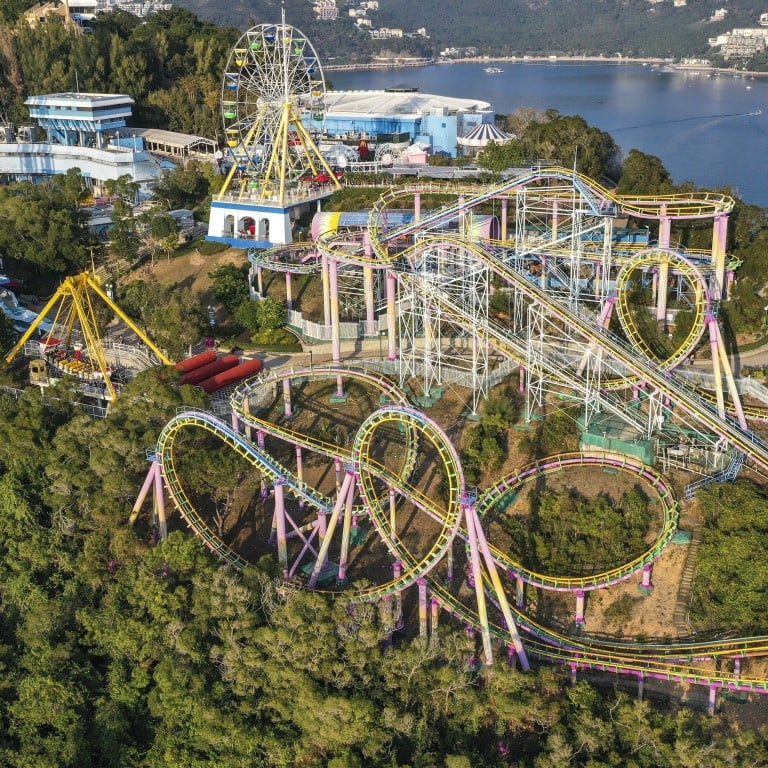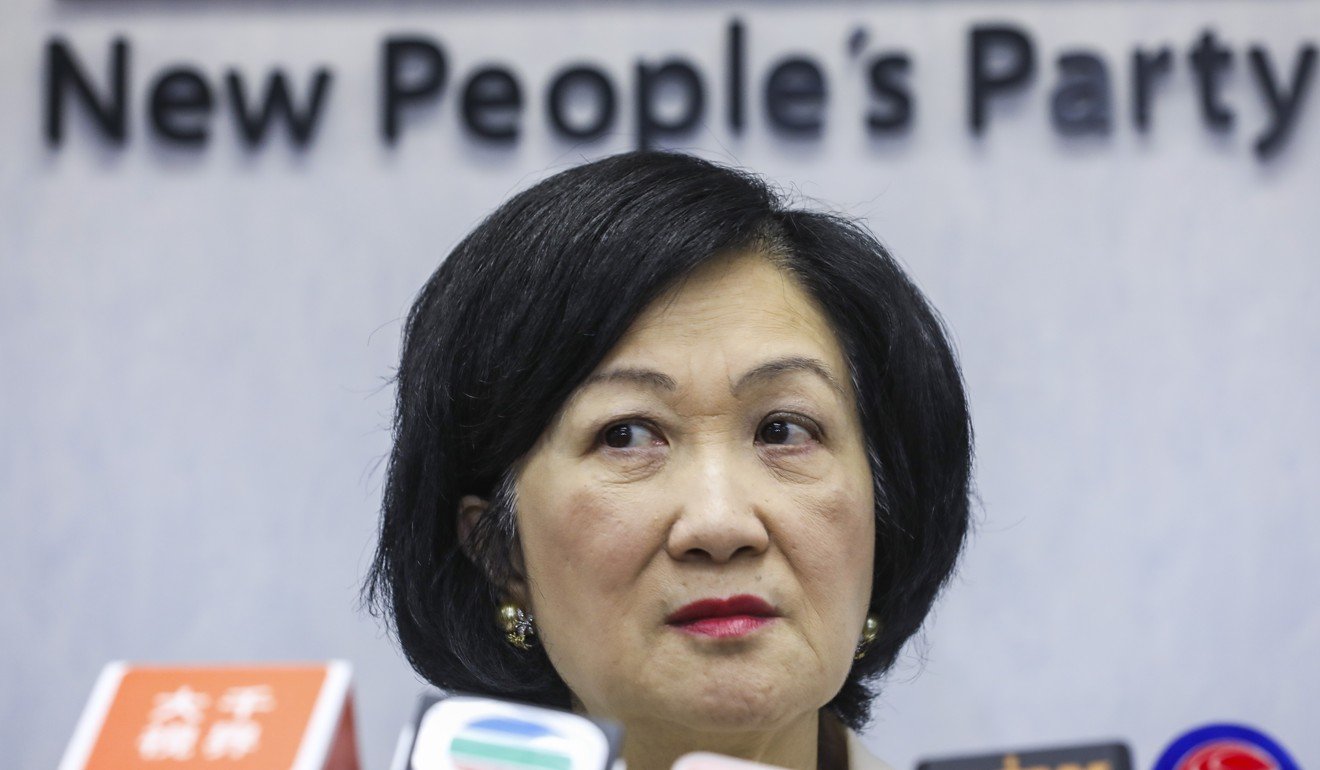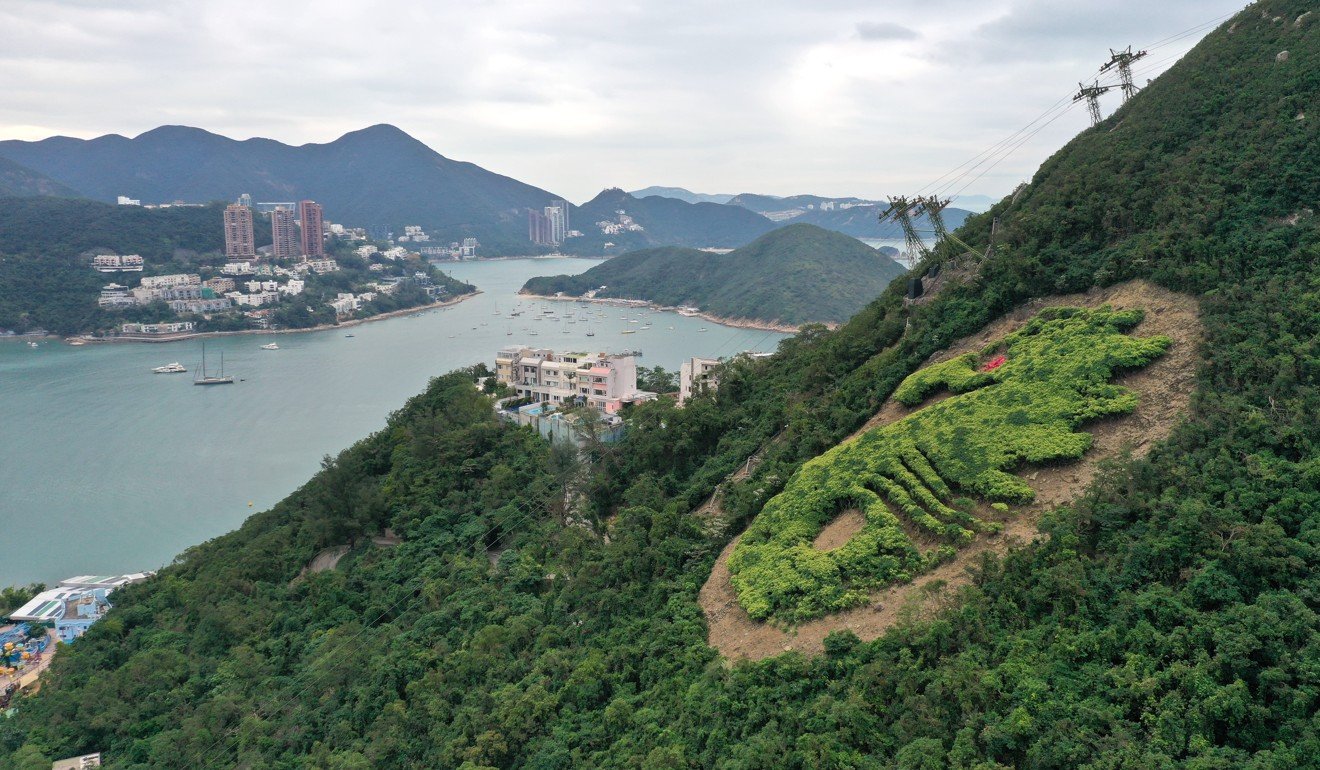
Is Ocean Park a ‘failed business’? Bosses reveal they have just HK$400 million in the bank, but owe HK$5.97 billion, and want billions more for rebuild
- Hong Kong theme park wants money for major revamp but lawmakers are unconvinced
- Regina Ip tears into bosses and says, ‘if you were an actual business you would have gone bankrupt’
Top management and directors from the stricken theme park appeared before the Legislative Council’s economic development panel on Monday, where they were grilled about their “failed business”.
Park bosses also revealed in the meeting that the budget for its water park, which has had its opening postponed from 2017 to this year, was more than a billion over its original budget of HK$2.29 billion.
It has warned it would run out of money this year if it was not given fresh capital, prompting legislator Regina Ip Lau Suk-yee, from the pro-establishment New People’s Party, to ask about the exact figure.

“We now have HK$400 million in cash,” said Matthias Li Sing-chung, the park’s chief executive.
That revelation brought a stinging response from Ip.
“But you owe debts amounting to billions,” she said. “If you were an actual business, you would have gone bankrupt. This is a failed business.”
Opinion: Ocean Park must be worthy of taxpayers’ money and not just another white elephant
But lawmakers from across the political spectrum cast doubts on the proposal, and took issue with the amount of money needed, and asked how the park could ensure the funds would not be used to pay off the park’s massive debt.
The 43-year-old facility, which has been operating at a loss since 2015 and has suffered financially during the anti-government protests, has said it would not be able to repay HK$2.3 billion in commercial loans, and another of HK$3.67 billion owed to the government, both due within the coming two years.
Part of the current proposal also includes delaying the repayment of the government loans by eight years. Unlike the Hong Kong Disneyland Resort, which is co-owned by the government, Ocean Park is run as non-profit-making enterprise, with board members appointed by city officials.

The park’s top management and officials from the Commerce and Economic Development Bureau, led by its head secretary Edward Yau Tang-wah, therefore tried to convince lawmakers the funding for the facelift, including seven zones and 20 attractions over the next seven years, would be justified.
The plan is expected to increase the number of visitors to 7.5 million in 2027-28, from the range of 5.7 million to 6 million between 2015 and 2019, they said. The projected figure for last year, which was hit by the civil unrest, was 3.3 million.
Lawmakers voted 7 to 5 for a non-binding motion to support the plan, although that did not come without a grilling.
Pro-establishment lawmaker Holden Chow Ho-ding asked why the government’s funding could not be scaled down just to ensure the park could overcome its current difficulties, before venturing into the next big plan.
Ocean Park bailout will do more than ‘stop the bleeding’: tourism chief
Roy Kwong Chun-yu and Kwok Ka-ki, from the pro-democratic bloc, asked whether there was a “plan B”, or repackaged proposal which could focus on the park’s strengths rather than a full-blown makeover.
Yau said the money was not only about helping the park recover, it was also about investing in the future.
“If you can’t lure visitors back, this cannot solve the problem,” he said.
The park’s chairman Leo Kung Lin-cheng said experts had conducted an 18-month study, during which target audience from various countries was also surveyed, before the new plan was finalised.
But Ip dismissed that as “empty talk”, and said it would be hard to ensure the plan did not go over budget or suffer delays.

